
With their sweet flavor and crunchy texture, carrots make a satisfying snack or side dish. Although raw carrots taste wonderful cut up in sticks or shredded over a salad, cooked carrots kick up the flavor of these familiar root vegetables and diversify how you can use them in recipes. Steaming, boiling or baking carrots each shows a different side of the carrot and may make the vegetable more nutritious than eating it raw.
Steamed Carrots
Steaming 1/4-inch pieces of carrot for five minutes allows them to retain some of their familiar crunch while still providing the versatility of cooked carrots. This short cooking time also protects most of the carrots' vitamin C content, which can be lost during cooking. If you prefer a softer steamed carrot, leave the pieces in the steamer for 9 to 10 minutes.
Boiling Carrots
Boiling carrots produces a soft cooked vegetable that can be eaten whole or mashed. Because the carrot pieces are cooked at high heat for up to 20 minutes, this method causes some nutrients such as vitamin C to be destroyed. If boiled for less time, the carrots retain more vitamin C and have a crisper texture. Boiling carrots for a brief amount of time, or blanching, before freezing them can help improve their texture when they are later thawed. The carrots are dipped in boiling water for 2 to 3 minutes and then quickly cooled in an ice bath. The pieces are then allowed to dry before being placed in freezer bags.
Baked Carrots
Roasting carrots caramelizes some of the sugars in the carrots and brings out a smoky sweetness. For the best flavor while still retaining a satisfying texture, roast 1/2-inch pieces of carrot at 425 degrees Fahrenheit for no more than 20 minutes. This cooking method does destroy some of the carrots' vitamin C content.
Cooked Carrot Nutrition
Cooking carrots actually help bring out extra nutritional benefits. Carrots have outstanding vitamin A content, thanks to their high levels of beta-carotene; over 200 percent of your daily requirement are contained in a half-cup of raw carrots. Cooking carrots enhances their beta-carotene content, which leads to more vitamin A. Boiling, while somewhat destructive to vitamin C, is one of the best methods to boost beta-carotene levels in carrots.
Related Articles
What Types of Vegetables Cook Well in a ...

Can You Boil Broccoli & Carrots at the ...

How to Freeze Cooked Carrots

How to Store Carrots in the Refrigerator

Does Boiling Carrots Destroy the ...

The Weight of Raw Lentils to Cooked ...
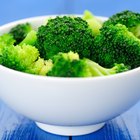
Ways to Cook Broccoli

How to Cook Vegetables Without Losing ...

How to Grill Carrots

Does Deep-Frying Vegetables Rob Them of ...
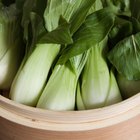
How to Steam Cook Cabbage

Fruits & Vegetables Rich in Potassium ...

Nutrition Information on Blueberries
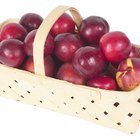
How to Freeze Whole Peaches & Plums

How to Freeze Fresh Corn on the Cob
What Types of Vegetables Cook Well in a ...
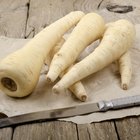
How to Prepare Parsnips

How to Glaze or Sweeten Canned Carrots

How Long to Boil Potatoes Before Baking?
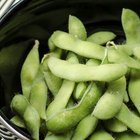
List of High Protein Vegetables
References
- World's healthiest Foods: Carrots
- Journal of Agricultural and Food Chemistry: Effects of Different Cooking Methods on Nutritional and Physicochemical Characteristics of Selected Vegetables
- Betty Crocker's New Cookbook; Jean E. Kozar, editor
Resources
Writer Bio
Based in Portland, Ore., Tammie Painter has been writing garden, fitness, science and travel articles since 2008. Her articles have appeared in magazines such as "Herb Companion" and "Northwest Travel" and she is the author of six books. Painter earned her Bachelor of Science in biology from Portland State University.
Photo Credits
Hemera Technologies/AbleStock.com/Getty Images